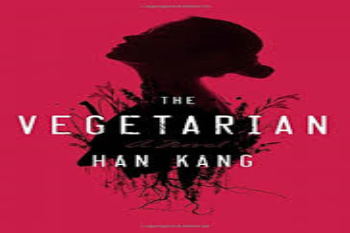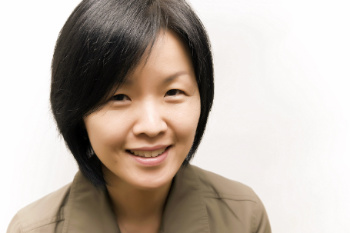
Korean Literature attracts global readership
By Kim So-jung, Choi Ye-jin, Hyun Yu-jin
Recently, Korean literature and culture has gained much attention from worldwide readers and media. The country’s history has had a great influence on the evolution of its literary works. In the early 1980s, Korean writing was uncommon and only read within the country.
From the 1900s until the end of the Korean War, Korean literature mostly imitated Chinese style. Moreover, Korean authors only wrote on limited themes, such as criticizing government rule or the Japanese empire, thus leading writers mainly to publish works focused on politics and the country’s economy.
Korean literature had no diversity in genre during this time, given that all stories were fictionalizations of true events. Many expected the stories to change and diversify after the end of the Korean War in August 1945, but it did not. Korean literature then focused on the country’s economy, industrialization and urbanization. This way, the rest of the world found the stories hard to relate to or understand.
However, once the country had undergone rapid economic growth and modernization the style of writing changed, and authors began to develop their techniques. In the 1960s and 1970s, Korean media and literature started a new era. Writers began to produce pieces with more individuality and creativity. Authors wrote biographies and started writing non-fiction and also tackled other genres such as romance and fantasy.
Korean literature reaches international readers
The first translated collection of Korean short stories was published in 1974 by Sun Woo-hwi, titled “Flowers in Fire”, translated by Peter H. Lee. The English version included twenty short stories that illustrated the growth and history of Korean literature. After this, more genres and stories written by Korean authors were translated and introduced.
Today, public interest in Korean movies and media has drastically increased around the world. With that, the popularity of Korean literature has skyrocketed. Even neighboring countries such as China and Japan have prevailed ‘mass market literature’ by taking Korean literature and script techniques as a benchmark to develop their own texts.
As Korean participation in world literature has grown, several stories have been translated and authors have gained international recognition. Some internationally known Korean authors include Shin Kyung-sook, author of “Please Look after Mom” and Han Kang, famous for her novels “The Vegetarian” and “The White Book”. Han Kang has even been shortlisted for the Man Booker International Prize 2018 which will be announced May 22. These two writers have become known for their dynamic writing-style that remains sensational even when translated into English. Not only the two authors but also Kim Su-mi, writer of “The Interpreter” and Lee Krys, author of “Drifting House” has brought a spotlight on Korean literature and lead to brighter future for upcoming writers.
Han Kang’s nomination for the Man Booker Prize
Han Kang has been nominated for the Man Booker International Prize for the second time for her 2016 novel “The White Book.” Considering the Man Booker Prize is one of the world’s top three literary awards, Han’s nomination of the prize is a significant event, even more so because she has already won the Man Booker International Prize in 2016 for her book “The Vegetarian.” Even though it is common for authors to be nominated twice in a row for this award, it was meaningful since she was the first person in Asia to win the Man Booker International Prize.
Having been raised by a novelist father, Han’s skill in exquisitely combining beauty and horror has been highly appreciated by her readers. Han’s style of writing is both natural and powerful, and manages to depict events realistically, captivating her audiences all around the world. In addition to Han’s skill in Korean writing, the translator of her books “The Vegetarian,” “The White Book,” “Human Acts,” Deborah Smith, has brought her own skills to mesh with Han’s to create a successful writing piece, drawing the world’s attention to Han’s literature.
Her latest novel, “The White Book” which is currently nominated for the Man Booker International Prize, has been highly praised for its hard-hitting experimental technique of breaking down the boundaries of prose and verse. This book consists of 65 short stories and mainly deals with meditation on color, beginning with a list of white things. This book talks about mourning, death, rebirth, and the tenacity of the human spirit. On the other hand, “The Vegetarian” vividly describes the violence of people, a fatal event that even hurts the soul and draws attention to the futility of life. Though the two books differ both in terms of story and narrative style, they both succeed in forming an intricate web of connection between readers and their author.
After Han’s winning the Man Booker International Award in 2016, Korean literature has begun to receive considerable attention worldwide. London Book Fair organizers have begun to show interest in modern Korean literature, even though they still see “The Vegetarian” as a peerless book. For example, the novelist of “Please Look after Mom,” Shin KyungSook, received the second biggest prize, the 2011 Man Asian Literary Prize. We can see that the role of Han in globalizing Korean Literature is very significant.

Interview with Jung Hayun, acclaimed writer and translator Writer and translator
Jung Ha-yun’s work has appeared in The New York Times, the Harvard Review and other publications. She is the recipient of a PEN Translation Fund Grant and a Radcliffe fellowship from Harvard University. She is currently an associate professor at Ewha Woman’s University Graduate School of Translation and Interpretation in Seoul.
How is the boundary between author and translator drawn? Is translation itself a creative process whereby the translator has some artistic freedom?
For every translator, the shared goal is to produce a translation that is faithful to the original text while rendering it readable and comprehensible to the target readership. The execution of this goal, of course, is not that simple. But every translator constantly juggles and negotiates with the source text and the target language, between fidelity and the compromise of fidelity for the sake of comprehensibility or effect. This execution is an intensely creative process that requires creative solutions, but how much poetic license does such creativity require or permit is a question that each translator confronts with every sentence and phrase.
Many people have commented that Korean authors and poets are at a disadvantage in competing for international literary prizes due to the difficulty of Korean-English translations. Is it the case that Korean-English translation poses more of a challenge compared to translations of languages similar to English?
One of the biggest reasons that Korean literature has yet to gain a wide readership around the world – or recognition from the West, as represented by a Nobel recognition – is because the history of Korean literature, especially literature written in Hangul, is comparatively short compared to literature from China or Japan or other Asian countries. This has been less than a century, taking the Japanese colonial period into consideration.
Quality translation is achieved when there are a sufficient number of enthusiastic readers with strong command of the source language, which also requires a significant amount of time to accumulate.
Of course, translation between Korean and English poses more obstacles, both grammatically and culturally, compared to translation between language pairs that are linguistically closer, but this is a relative issue. All translation, especially literary translation, is an endeavor of impossible transfers. Translators find creative solutions as translations of important literary works build up over time, offering reference and insight. The translation of Korean literature into English has not yet been done or published in a great enough quantity.
The export of Korean literature to the English readership has been minimal thus far. Those few translations that do exist are also concentrated on the works of several authors such as Shin Kyung-sook and Han Kang. How has this come to be?
Again, this has much to do with the relatively short history of modern Korean literature and literary translation. The introduction of Shin Kyung-sook and Han Kang to English-speaking readers has helped create a recognizable identity for Korean literature. While it is hard to say that the accolades received by Han Kang have or will lead to a rise in the general interest in Korean literature, we can definitely say that there are now a couple of recognizable Korean names for readers in the West.
Excluding works originally written in Korean, are works written by Korean-American authors such as Lee Chang-Rae or Lee Min-jin, classified as Korean literature or American literature?
Works written in English by the Korean diaspora is considered part of American literature or British literature or more specifically, AsianAmerican literature. There are also views in Korea that diaspora literature should also be considered as part of Korean literature.
The success of The Vegetarian has been attributed to Han Kang’s writing style and her collaboration with the translator Deborah Smith. How does the process of author-translator pairing work?
There are several ways in which such matches are made.
Sometimes the author, agent or publisher finds a suitable translator for the work and commissions the translation; sometimes the translator decides to take on a work and pursues the opportunity through translation contests, government-funded grants or by approaching the author/publisher themselves. The role of the author in translation also varies. Some authors choose not to get involved at all, or some authors offer to collaborate in the translation process.

